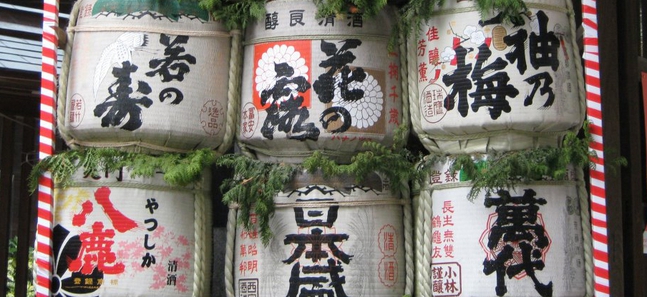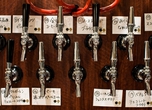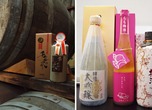Local Potions
Get into the spirits of Japan

Posted: Wed Oct 02 2013
Japan is home to three key indigenous alcoholic drinks: nihonshu, shochu and awamori. The famous ‘saké’ is a synonym of nihonshu, but can also be a catch-all for booze in general, so nihonshu is the unambiguous way to order.
Nihonshu (saké)
Nihonshu is brewed from rice, and fermented with an enzyme that converts the starches to sugar – a step that parallels malting barley in beer-making. This allows saké to rise to as high as 20 percent alcohol – though it’s almost always watered down again to around 16 percent. Nihonshu can be served hot or cold, but in general it’s the cheap stuff that’s heated and the premium stuff that’s best enjoyed chilled. For the best, unadulterated stuff, ask for junmai.
Shochu
Shochu (and awamori) are distinct in that both are distilled rather than brewed. Thus they’re significantly more potent, at anything from 20 to 50 percent alcohol. Shochu can be made from one of several raw materials, including barley, rice or the popular purple Satsuma sweet potato. If it’s distilled only once, it’s termed honkaku shochu (‘the real thing’) and bears the distinct fragrance of the source produce. But it can also be distilled multiple times into a clear liquor that’s great for mixing with fruit juices. Japan’s convenience store shelves are loaded with canned versions of just such a potion – called chu-hai. Premium shochu can be enjoyed in a number of ways: on the rocks, mixed with a little hot water, or with a pickled plum thrown in the glass.
Awamori
Awamori is also distilled but is made only with imported Thai long-grain rice, and it hails from the southern islands of Okinawa. It has a significantly more earthy flavour than shochu, thanks to the special mould that’s used in the distilling process. Awamori can be drunk on the rocks, mixed with hot or cold water, or even straight (in small doses), but Okinawans drink it with ice and water. Look for the kuusu, a premium version aged for at least three years.
Tags:
Tweets
- About Us |
- Work for Time Out |
- Send us info |
- Advertising |
- Mobile edition |
- Terms & Conditions |
- Privacy policy |
- Contact Us
Copyright © 2014 Time Out Tokyo














Add your comment